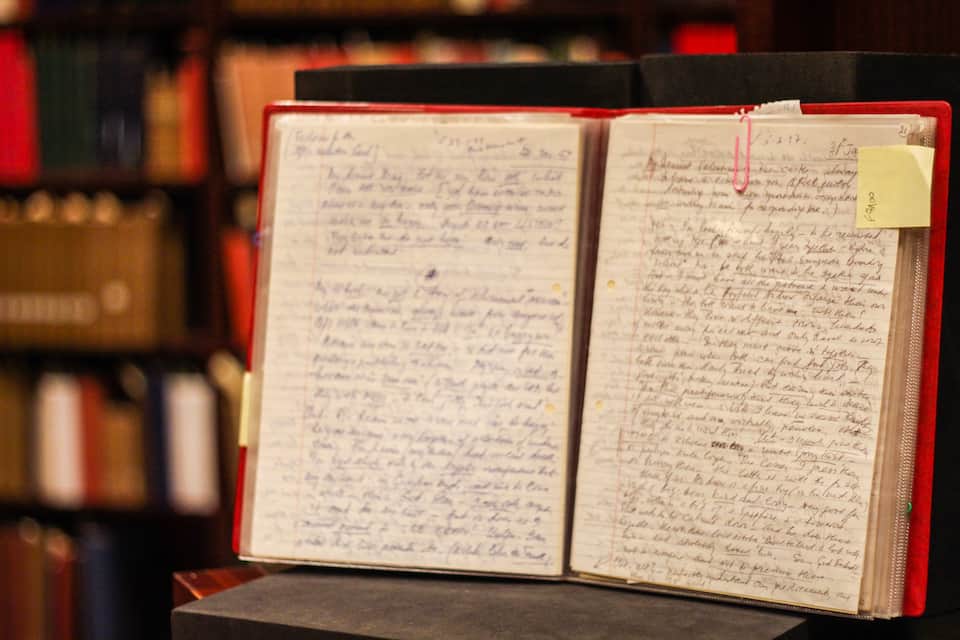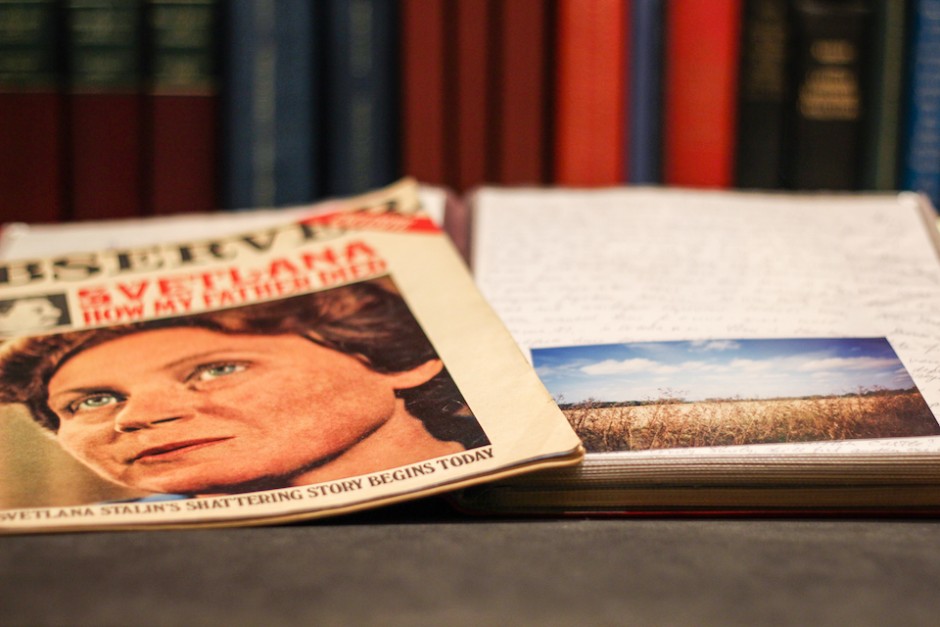U of T’s Thomas Fisher Rare Book Library has just acquired a collection of letters written by Joseph Stalin’s daughter, Svetlana Alliluyeva. The library received the letters by way of an auction, with the help of Rosemary Sullivan, U of T professor emeritus. The collection will soon join the library’s display of Sullivan’s research, all documented in her book, Stalin’s Daughter.
Sullivan was awarded the Hillary Weston’s Writers’ Trust Prize in 2015 in recognition of her work. She first encountered Alliluyeva’s letters when she contacted Mary Burkett, the letters’ original recipient. “Mary invited me to visit her at her manor house in Cockermouth in the Lake District,” said Sullivan. “It was there that she was presented with the box of letters. There were several hundred letters, some of them delightfully decorated with graphic doodles that Svetlana used to explain her points, some with photographs. I was able to go through them and read the parts of the letters I wanted to quote into my tape recorder for later transcription.”
Jane M. Renfrew, a well-known archaeologist and friend of Burkett, informed Sullivan that the letters were to be auctioned. “Jane told me that her considerable estate was coming up for auction at Mitchell’s Auction House in early September and one of the
items was Svetlana’s letters to Mary. Jane said we had to do something before the letters were snatched up by some Russian oligarch.”
Sullivan then contacted Anne Dondertman, associate librarian for special collections at Thomas Fisher, to see if they would be interested in housing the collection. Following a successful meeting, Sullivan arranged to bid for the letters by telephone, a process that she described as tense and exciting as she competed against an unidentified rival bidder.
“As the letters are a fairly recent acquisition, they are being processed right now,” According to Dondertman, the letters will be available for in-library use only. Members of the public will also be able to access the materials. “These letters will be available just like any of the other archival collections we have here,” she said.
Both Dondertman and Sullivan said that the letters are a valued addition to the library’s archives. “They have a wide interest as an example of somebody’s individual story meshing so much with the big stories of the 20 century.”
“It wouldn’t be easy to be Stalin’s daughter — her mother committed suicide, loss of members of her family because they disappeared or were executed and she was still trying to live a meaningful life… it’s a sad story in the end, but also an inspiring one, so having her in her handwriting and her in her intimate letters… they give us a window into what she was going through, and how she thought about things.”



